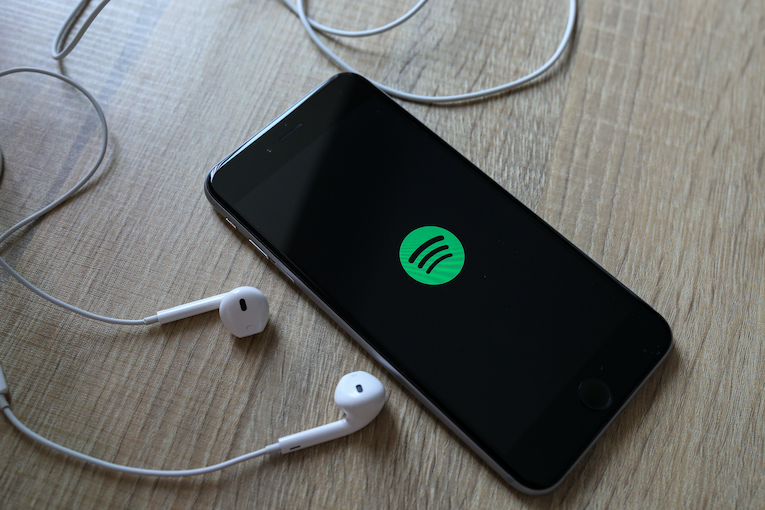
Outrage Over Spotify’s New ‘Invasive’ Voice Recognition System
By Martine Ehrenclou
A coalition of human rights groups and musicians signed an open letter to protest Spotify’s new speech recognition technology patent that was designed to record users’ speech and background noise to make music recommendations based on their mood, gender, age, accent or surroundings.
Spotify’s patent for that speech recognition technology was approved in January, 2021. The open letter with more than 180 artists and activists called on the company this week to stop the project and make a public statement that they will never use, license, sell or monetize it.
The letter says, “This recommendation technology is dangerous, a violation of privacy and other human rights and should not be implemented by Spotify or any other company.” Also included was a demand to stop using the technology. See letter here and the second, follow up letter see here
Among musicians who signed the letter are Tom Morello of Rage Against the Machine, rapper Talib Kweli, Laura Jane Grace of the band Against Me and advocacy groups Amnesty International and Access Now.
Morello said in a statement, “You can’t rock out when you are under constant corporate surveillance.”
The people who signed the letter said that Spotify’s new voice recognition raises privacy concerns.
Is this new?
Amazon’s Alexa listens, records and stores your private conversations. Smart TVs, Google, Amazon Echo and Echo Dot, Microsoft and more, do the same thing. Listening occurs all the time so that every word you say uploads to their cloud services to be transcribed before it can respond to your requests and basic commands. The “listening” command can be turned off, but it’s automatically on in the default settings. If you don’t turn it off, everything you say may be recorded through your device’s microphone.
Here is where it gets a bit creepier and more invasive. Amazon hired a team of people to analyze pieces of conversations that devices secretly record and upload, claiming it improves the Alexa customer experience.
We all know the goal is to target ads so we buy more stuff. It’s about money, profit. Just like when you search the internet or use social media, you see ads targeted specifically to you based on your online searches. It happens in conversations too. How many times have you had a conversation with someone, your phone in hand, and ads pop up on social media or Google about the subject you were just discussing?
It’s happened to me. I bet it’s happened to you. The listening is “on” in the default settings of your smart phones, smart TVs, Amazon’s Alexa and other smart devices like it, and more. You can turn it off. The claims are that smart speakers accidentally record conversations. But if you read this article in BBC News, Why Amazon Knows So Much About You, you can understand the breath of this widespread issue.

Spotify’s voice recognition takes things a step further by recognizing a user’s emotional state, age, gender and more. In the most recent letter to Spotify CEO Daniel Ek, the coalition protests its new patent outlines five concerns with the new technology. You can see the five primary concerns here. The letter reflects concerns about how Spotify will use this technology to manipulate users emotionally, harvest their personal information and discriminate against people.
Ever seen the movie The Social Dilemma?
Spotify has written back and Horacio Guttierez states, “Spotify has never implemented the technology described in the patent in any of our products and has no plans to do so.” See Spotify response letter here.
Really? Why get a patent approval for it then? They give reasons in their response letter. Spotify hopes that their privacy policies around its recent voice recognition technology are proof of their good will.
The coalition protesting Spotify’s voice recognition technology isn’t backing down. They demand that “Spotify must completely reject the premise of this technology and commit to never using, licensing, selling or monetizing their speech recognition patent,” said Lia Halland, communications director for Right For the Future.
This is bigger than Spotify. Roughly 1 in 4 US adults now owns a smart speaker. That’s 157 million of these devices. See report here and that doesn’t include smart phones, tablets, and more. Maybe it’s time to go back to vinyl.
What are your thoughts on this? We welcome your comments in the comment section below.

Leave A Comment